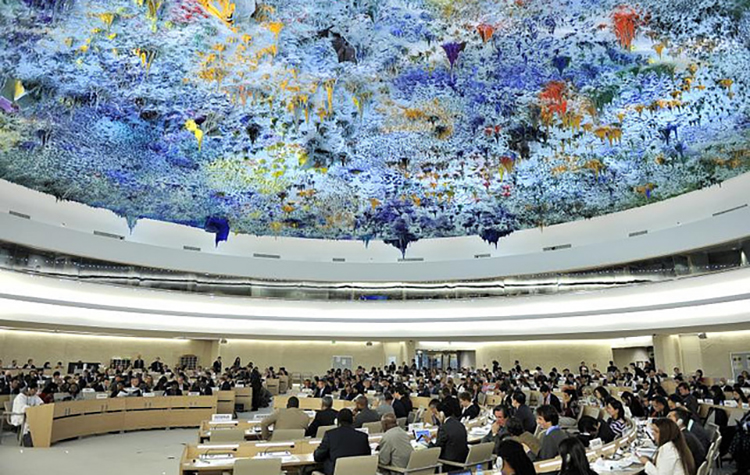38th Regular Session of the UN Human Rights Council
Item 3: Interactive dialogue with the Special Rapporteur on the rights to freedom of peaceful assembly and of association
Oral Statement Delivered by Rosanna Ocampo on behalf of Asian Forum for Human Rights and Development (FORUM-ASIA)
Monday, 18 June 2018
Mr President, FORUM-ASIA welcomes the report of the Special Rapporteur on the rights to freedom of peaceful assembly and of association. We share his concerns on restrictions to these freedoms including on the use of foreign funding for civil society in Bangladesh; increasing risks faced by environmental human rights defenders in the Philippines, Indonesia, and Thailand; the targeting of women human rights defenders and LGBTI defenders; and use of force in demonstrations held by ethnic minorities in Burma.
We emphasise the Rapporteur’s call to recognise the important role of civil society in shaping governance and inclusiveness and in relation to this, note that freedoms of association and assembly are critical for free and fair elections .
In the Maldives, which will face elections later this year, the restrictive Freedom of Peaceful Assembly Act remains in force, requiring mandatory prior written permission to hold peaceful assemblies. The law and other arbitrary, repressive measures continue to be used in a discriminatory manner to obstruct – and often prohibit – peaceful rallies organised by human rights defenders and the opposition. This seriously undermines the democratic environment necessary for free and fair elections.
In Bangladesh, attacks and restrictions on political opponents and dissenting voices including civil society have produced a chilling effect ahead of upcoming elections in December 2018.
In Thailand, pro-election demonstrators have been judicially harassed. Last month, on the fourth anniversary of the military coup, pro-election demonstrators gathered in a peaceful assembly calling for non-postponement of the election. 15 demonstrators were arrested and charged with various offences. Authorities have additionally pressed charges against 47 people who participated in the demonstration.
We ask the Special Rapporteur to elaborate on how the work of his predecessors on elections could be used by states and if there is any scope for further consolidating this body of work.
Thank you.
***
For a PDF version of this statement, click here.



